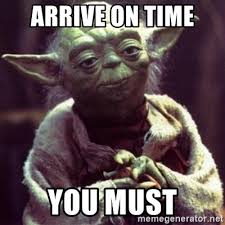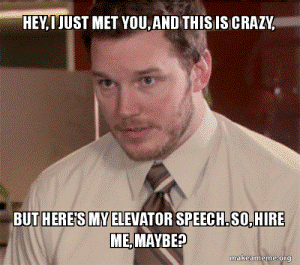
A Few “Dos and Don’ts” of Interviewing
- November 6, 2019
- taylorwhitews
- General
- No Comments
Interviews are fun, right? Ok, maybe not for everyone, but there ARE things you can do to make them easier! As executive recruiters dedicated to Accounting & Finance consulting and permanent staffing in Tampa Bay for almost 20 years, you can imagine that we’ve had our share of experience with interviews. We’ve seen what works and what doesn’t, and part of our job is guiding our candidates on how to be successful. Here are just a few tips we’d like to share to help YOU knock it out of the park in your next interview.
Preparation
- DO thoroughly read the job description. These two things will help answer basic interview questions, such as…. “What do you know about the company?” and “Why do you make a great fit for this role?”
- DON’T “wing it” and skip the preparation. It will absolutely reflect on you and your performance, regardless of how much a “pro” you are with interviewing.
- DO plenty of research about the organization. What do they do? What are their products or services? What is their company history? What hot press releases have come out recently?
Arrival and Presentation
- DON’T arrive late OR too early. Arriving late can suggest that the potential employer’s time is not valuable and arriving TOO early can really throw off the interviewer’s schedule. Plan to walk in about 10 minutes before your interview slot, and if you do arrive much before that, use the extra time in your car to re-read your notes.
- DON’T dress too casual or otherwise inappropriately for the interview. Watch your grooming too! Unless explicitly told otherwise, you should plan on wearing a suit. This expresses professionalism and confidence.

What to Bring
- DO have thoughtful, intelligent questions…and not the generic ones you found on the internet. Think about the company and the role, and plan out great questions in advance!
- DON’T show up empty handed. This can give the impression that you aren’t prepared or are “just not that interested” in the position. You should bring a portfolio, paper and pen, and plan to take notes! If you don’t take notes, you could give them impression that you’re not interested in what the interviewer is saying.
- DO show up with a few copies of your resume (unless they state otherwise). Again, this speaks to your preparation.
Interview
- DON’T be unprepared to speak about yourself, your employment history and what you bring to the table.
- DO practice your “elevator pitch.” Be ready to answer “So tell me about yourself” from a professional perspective. This means walking them through your job experience and being prepared to speak to ANYTHING listed on your resume, no matter how dated. Remember, if it’s on your resume, it’s free game for the interviewer.
- DON’T offer answers that are either too verbose, OR too concise. Give enough detail to answer the question but stick to the salient points.
- DO target 50/50 conversation that flows easily. The interviewer could potentially be someone you will be working with, so treat it as a conversation where you BOTH can get to know each other.
- DON’T leave the interview without asking your questions! Asking specific questions about the position ensures everyone is on the same page with respect to expectations. It also shows them your interest!
- DO ask questions that are important to you but be thoughtful about the way in which they could be interpreted. Employers want to know that you are looking for a career, not just a job, and they want to know that you’re willing to put forth the effort to succeed. When addressing potentially sticky subjects like work life balance, be clear that you’re willing to put in the work to get the job done but are simply looking to understand their expectations.
- DON’T focus on questions that could give the wrong impression about your work priorities. For example, if all your questions are about what you “get” and not what you can “give,” it could leave a bad taste in the interviewer’s mouth. “How much PTO do you give?” “Do I have to work overtime?”, “Does the company pay tuition reimbursement?” “When will I be eligible for promotion?” Although these questions are important, there is a time and place to get those answers!

Follow Up
- DO send thank you letters or emails! Something approximately 3 to 5 sentences should suffice as a genuine thank you.
- DON’T write a novel, but definitely follow up after the interview.
- DO proofread it before hitting Send. You don’t want your last impression to be a poor one.
So, hopefully these few tips will be helpful to you as you prepare for your next interview? Want to know more, or interested in hearing about the job opportunities currently available at Taylor White? Feel free to contact me directly at rachelg@taylorwhite.com. Happy interviewing!
